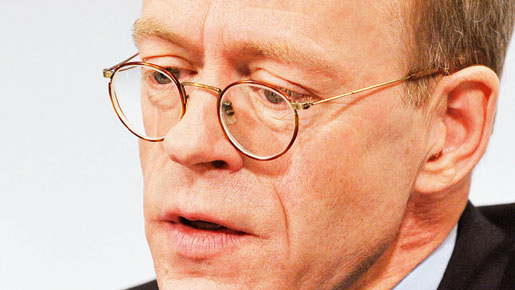
One could say with quite a degree of confidence that Nikolaus Von Bomhard is part of the furniture at Munich Re. Joining the company more than a quarter of a century ago as an intern, after having completed a PhD in law studies from University of Regensburg, the young aristocrat slowly – but with determination – worked his way up.
Along the way, Von Bomhard worked in many different positions within the company to finally be appointed CEO and a member to the Board of Management in 2000. A well-travelled individual and ambassador of Munich Re, Von Bomhard’s longstanding tenure at the company has seen him set up base in countries outside of its headquarters in Germany. Between 1997 and 2000, the Munich Re devotee found himself settled in Brazil, working in the position of Head of the São Paulo office in an attempt to solidify the company in that market.
The domino effect
As would be expected from any major global company in Munich Re’s league, it has more than one string to its mighty bow. It operates an integrated business model that spans reinsurance, primary and health insurance. As a result of the diverse nature of the company, Von Bomhard’s curriculum is equally sprawling and his responsibilities span group development, group investments and communications, and he also keeps a watchful eye on the company’s audit department.
Although Von Bomhard is a hotshot in his many fields, with a pay packet reported to be well into the millions to prove it, he has seemingly remained a grounded character and his life is – somewhat refreshingly for a man in his position of power – scandal-free. Married with two children, the opinion of the bespectacled man is generally held high by industry peers. Being the CEO of a reinsurer during times as uncertain as these would worry most, so it is for self-preserving reasons that Von Bomhard is keeping a close eye on the market and any shifts thereof.
In an interview conducted recently in Sueddeutsche Zeitung, Von Bomhard offered a rather gloomy outlook of the US and European markets, and he warned that a possible domino effect could be set in motion if the US should default on its debt. “We could still bear a partial payment default of the United States. But in any case this will cause us headaches because of the domino effect it would trigger,” he observed ominously.
He also went on to offer his less-than-positive views on the eurozone crisis: “Europe cannot bear new crises and new remedies to crises’ such as the efforts made to sustain the Greek economy.” To put a final spin on his bleak outlook, that is a sentiment very much shared but perhaps not often uttered. Von Bomhard states: “Absolutely safe investments, which we had been accustomed to for years, no longer exist. A state bond is no longer what it used to be − a safe investment in all respects.”
The real global crisis
Despite the tumultuous market in which Munich Re operates, Von Bomhard has affirmed that he expects the company will post a profit this year. This, despite a difficult three first months of the year, which produced losses due to claims from a string of catastrophes including the tsunami disaster in Japan, the earthquake in New Zealand and storms and flooding throughout the year in Australia.
Aside from being an authoritative figure with a firm and levelheaded approach, Von Bomhard is an ardent campaigner for a greener environment and is actively attempting to inspire his peers to follow suit. He has openly criticised the industry and the general public for not taking the issue seriously enough. “Climate change is a fact, and it is almost entirely made by man. It is jointly responsible for the rise in severe weather-related natural disasters, since the weather machine is ‘running in top gear’.”
The figures speak for themselves: according to data gathered by Munich Re, weather-related natural catastrophes have produced $1,600bn in total losses since 1980, and climate change is definitely a significant contributing factor. “We assume that the annual loss amount attributable to climate change is already in the low double-digit billion euro range. And the figure is bound to rise dramatically in the future,” said Von Bomhard in a statement following the Copenhagen climate summit in 2009. “We need a strict climate agreement, and we need it fast. Climate change is a global problem and a challenge for humankind. If the players do nothing but pursue their national interests, we are headed for a climate catastrophe.”
The heat is on
Setting a consummate example, Von Bomhard has pursued different green initiatives to assist in the quest to curb global warming. One such project is Desertec Industrial Initiative, or, as it is more widely known, DII. This is an extensive desert-power project conceived by twelve companies, with Munich Re at the forefront. The aim of the project is to produce enough power to meet 15 percent of Europe’s electricity requirements as well as a substantial portion of the power needs of the producer countries.
The undertakings to put the scheme into place are diverse and involved, and include the drafting of concrete business plans and associated financing concepts, and the initiating of industrial preparations for building a vast number of networked solar thermal power plants distributed throughout the MENA region. “We at Munich Re will make every effort together with our partners to rapidly turn this vision into reality. In the long run, however, the economy will need a global agreement to prevent a distortion in competitive conditions and relocation of high-carbon production processes and jobs into countries without any regulation mechanisms.”

